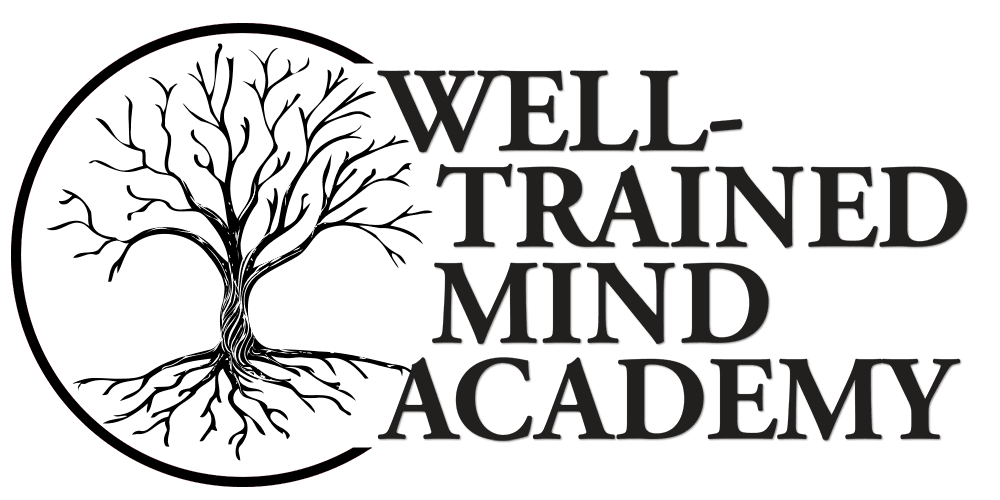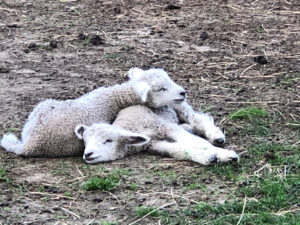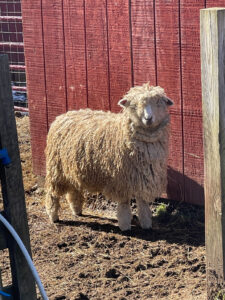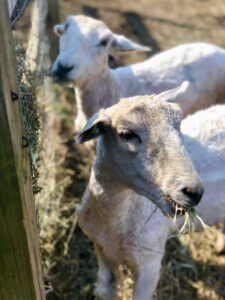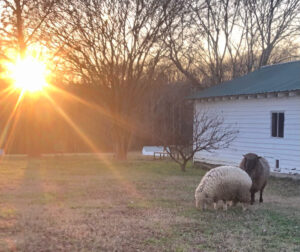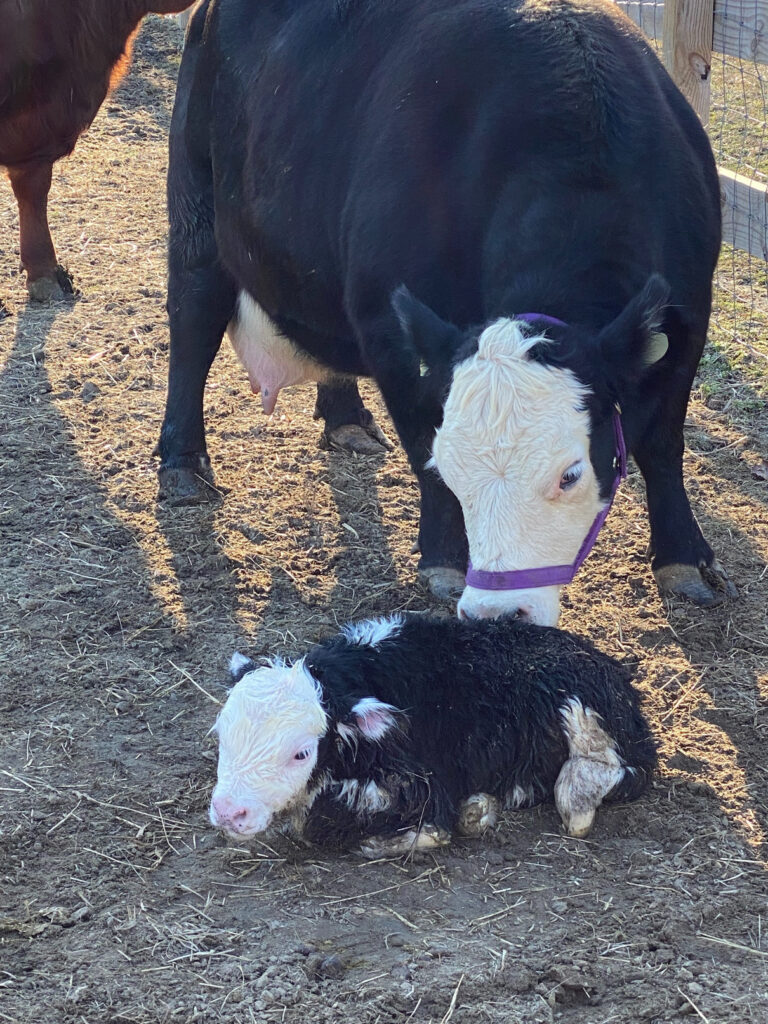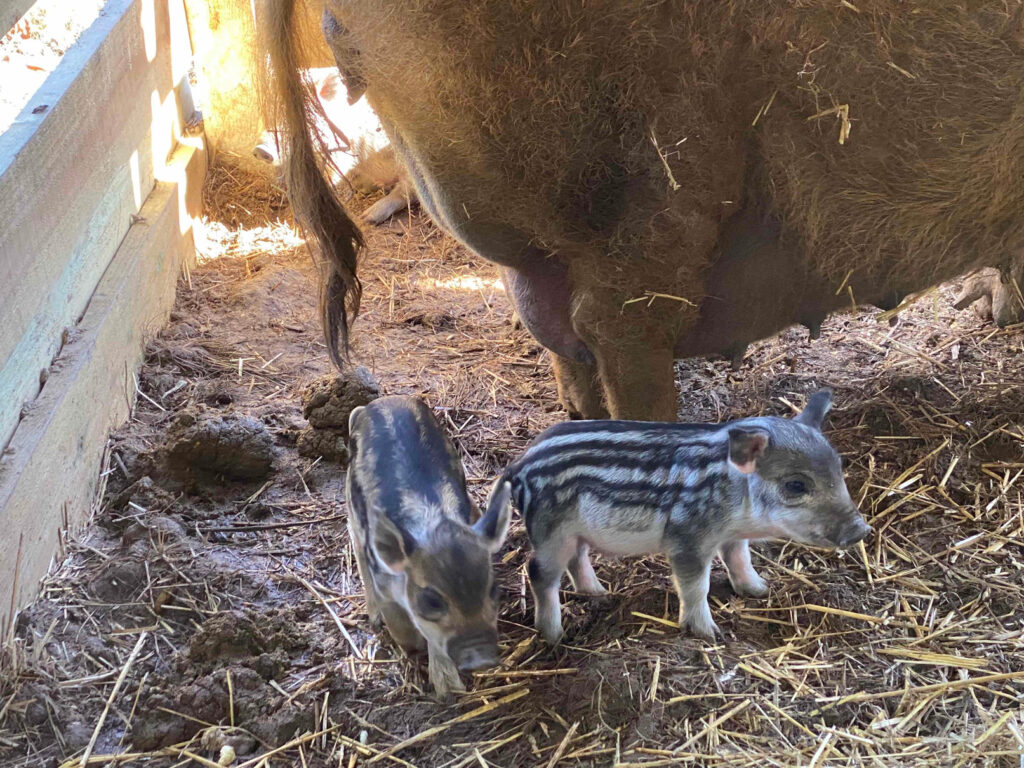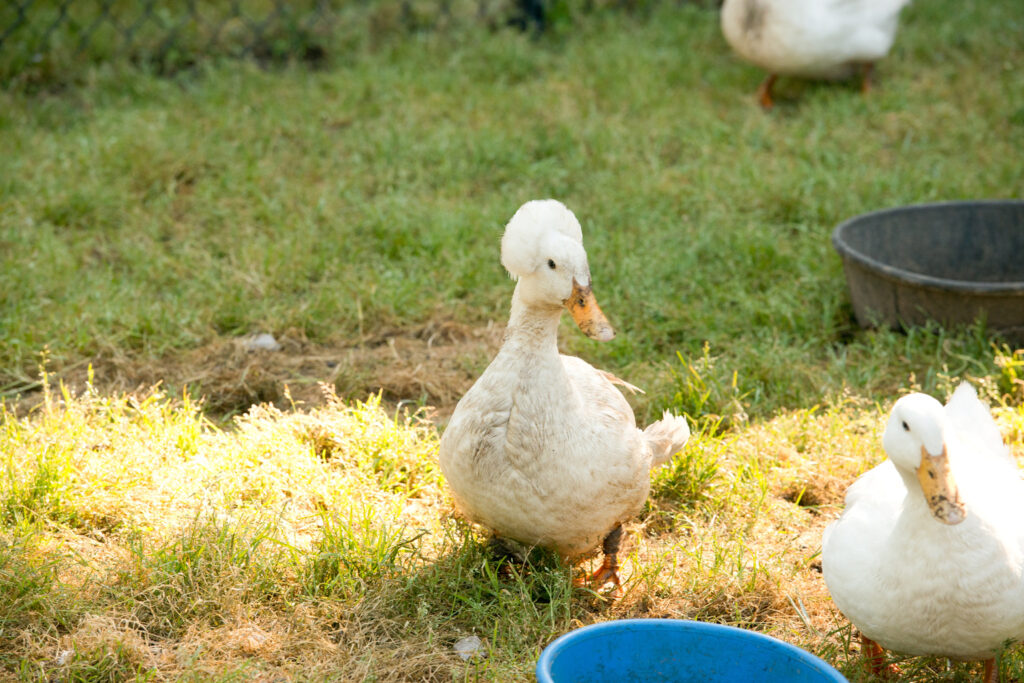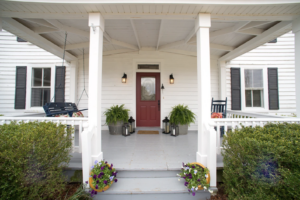Susan Wise Bauer: Educator, Entrepreneur, and … Farmer?

Susan Wise Bauer has been part of the homeschooling world for a long time. In fact, she was homeschooled herself as a child. Over the years she took her homeschooling education and used it to get two masters degrees, earn a doctorate, write several books, open a few businesses, and run the sustainable Peace Hill Farm. Dr. Bauer told our our high school students all about it and more during a recent visit to class.
In this first of two articles about Dr. Bauer’s visit with students, we’ll explore Peace Hill Farm and the animals Dr. Bauer cares for. We’ll also learn a little about the bed and breakfast on the farm, where guests can experience farm life and live “a little closer to the land.”
Contents
Dr. Susan Wise Bauer, the Shepherdess
Part of the joy that Dr. Bauer finds in working with animals is that it gets her out from behind a computer screen. Lambing season also means that she finds herself getting out from under her bed covers at all hours to help newborns into the world.
Sometimes she has to step in and bottle-feed the new ones if nursing doesn’t take off. In the picture below she’s with one such lamb.
The farm houses about 65 Leicester Longwool and Merino sheep and 45 Angora goats. The animals are sheared on the farm, and then their wool is mixed together and sold as a custom blend from the farm’s wool shop. Sheep wool grows at about an inch per month, so they are sheared once a year, when their fleece is about twelve inches long. Each sheep yields about thirty to forty pounds of wool per shearing.
The goats are sheared twice a year for mohair, when their fleece is about six inches long. Goats are much friendlier than sheep, and Dr. Bauer compares them to playful dogs in their mannerisms and how they want to be your animal companions.
Rotational Grazing at Peace Hill Farm
One sustainable farming practice at Peace Hill Farm is having the sheep graze in different locations all over the farm. The sheep benefit from moving around because they would suffer ill health effects if they ate in the same spot for too long. The farm benefits from this practice because it ensures pasture health. After the sheep graze in a particular section, the horses come through to graze; and then the cows, grazing on the same land that the sheep, goats, and horses have already visited. While there, the cows deposit their fresh manure all around the plot. After the cows have been through that particular patch of grass, the manure is spread, and, within a few weeks, that area of the farm is ready to be regrazed by another group of animals. Since horses and sheep have different parasites that pose little risk to one another, the cross-grazing process allows for decreased risk of parasitic infection across the farm.
Many other animals live on the farm with the sheep and goats, including Nigel and Madeleine, Miniature Hereford cows; several Mangalista pigs; way more than a paddling of ducks; two donkeys; and four horses.
Peace Hill Fall Fiber and Craft Festival
The farm hosts tours and special events – Well-Trained Mind Academy students should be familiar with the Peace Hill Farm Fall Fiber and Craft Festival, where there is an annual meet up of the WTMA community. The Fiber Festival is held primarily on the grounds of the bed and breakfast, a restored turn-of-the-century farmhouse. Guests often admire the beadboard walls and ceilings, the random-width floors made from pine cut on the estate, and hand-blown windows. During the Halloween season a haunted corn-maze greets visitors in front of the B&B. Inside the maze rests a family graveyard–you can’t get spookier than that!
Life is a Journey on Peace Hill Farm, and Everywhere
The students were enthralled by Dr. Bauer’s talk of the farm and bed and breakfast. Our cohort classes hear a lot about how life is varied and can take you in many different directions. There is no better example than the path Dr. Bauer herself has taken.
